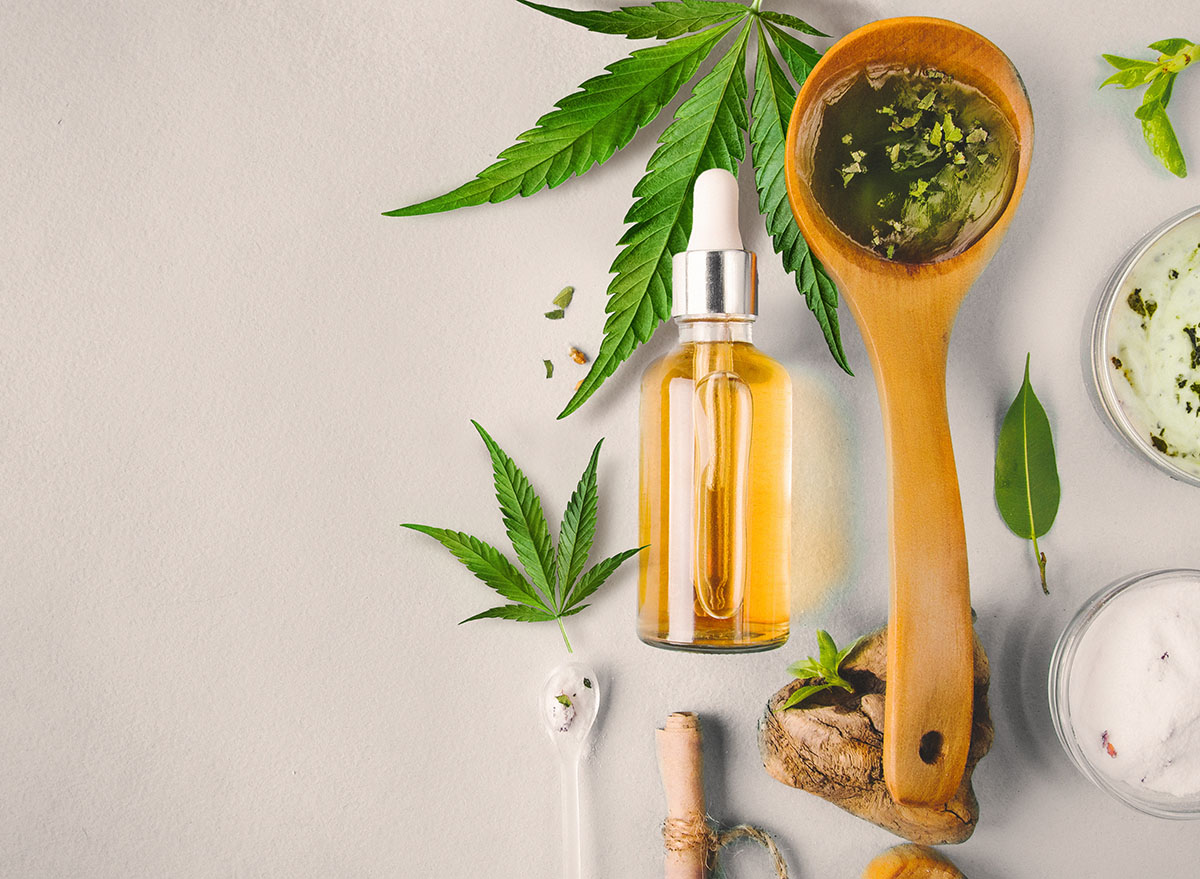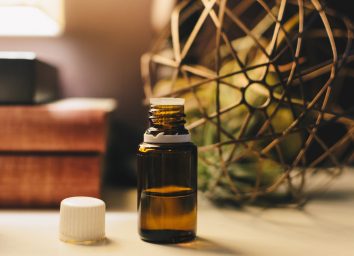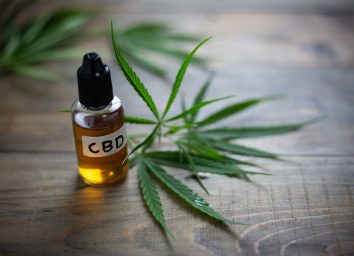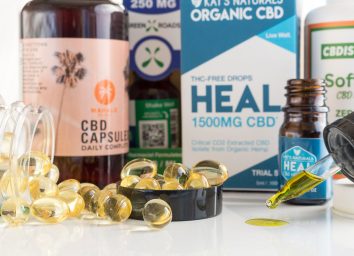CBD for Anxiety: Does It Work?

If you toss and turn for hours at night trying to fall asleep or find your mind racing from overwhelming deadlines and a constant stream of emails, the stress can feel suffocating. There are many ways of coping with anxiety, including therapy, meditation, and medications, but one you may not have considered is adding a dose of CBD oil to your routine to combat anxiety.
How to use CBD for anxiety (and insomnia)
CBD—short for cannabidiol—has gained popularity over the past few years, with forms from hemp oil tinctures to infused seltzers and candies. If you’ve never taken it before, the first thing you need to know is that you can’t get “high” or addicted to CBD. Although it is a product of cannabis, it lacks THC (tetrahydrocannabinol), the psychoactive part of marijuana that causes psychedelic effects. It is often used to help pain, inflammation, insomnia, anxiety, and depression, but has not been proven as a cure (which is the case for most wellness products). The only marijuana-derived active ingredient currently approved by the FDA is one specifically linked to helping treat epileptic seizures.
“Because receptors for cannabinoids are found in the digestive, reproductive, nervous, and immune systems, they interact with almost every system in our bodies,” explains Alexa Ibarra, a CBD educator and yoga instructor. “While they’re not truly able to treat everything, they do regulate neurotransmitter function, inflammation, mitochondrial function, and metabolism.” Ibarra notes that the key here is overall regulation, and adding CBD to your regular routine can help your body digest, metabolize, manage pain, and think more clearly, which can, in turn, lower anxiety and lessen overall stress.
What type of CBD should you try?
With that said, CBD should be something you slowly introduce into your routine with a few drops into water or tea. A single gummy or chocolate can also be used in a gradual introduction, allowing yourself to see how it affects you before increasing doses. Ibarra notes that “a few drops does not alleviate or ‘fix’ anxiety—think of it like a vitamin, which you have to consistently take to create positive effects. CBD takes time to really build up in your body and take effect.” To start a CBD routine, she suggests taking a few drops of a CBD tincture mixed into drinks or dropped directly under your tongue, and recommends brands like Higher Wave Wellness and Earth Mined. (Higher Wave makes a water-soluble version that will absorb immediately for faster relief.) If you go with a gummy or chocolate, treat it like a daily supplement or vitamin so you can see how it affects you and when to up the dosage. Choose what type of CBD works with your lifestyle. Sometimes CBD can make you tired, so we recommend taking it right before bedtime, especially if you have issues with nighttime anxiety or insomnia. (However, some people prefer taking it in the morning to manage daily stress.)
One way you may not have considered using CBD is topically via creams and salves. “We hold so much daily tension in the shoulders, trapezoids, lower back, and hips, and rubbing those areas with a CBD salve can give you a euphoric, freeing feeling and ease stress and anxiety, too,” she says. Ibarra suggests Earth Mined’s 300 mg topical cream, which she used as part of a full CBD routine to help her heal after breaking a few ribs last year.
Bottom line: Should you give CBD for anxiety a try?
CBD is not a magic fix-all for anxiety or tension, but it can be helpful as part of a holistic approach when combined with other forms of treatment like cognitive-behavioral therapy.
It’s worth giving it a test run with a low dosage to start, and monitoring whether it helps alleviate any symptoms. Keep in mind that it usually takes time for your body to adjust to a new routine, so try taking it consistently for a few days at the very least. Whether you need help sleeping or just carry a little extra day-to-day stress, it might give you a peace of mind.








